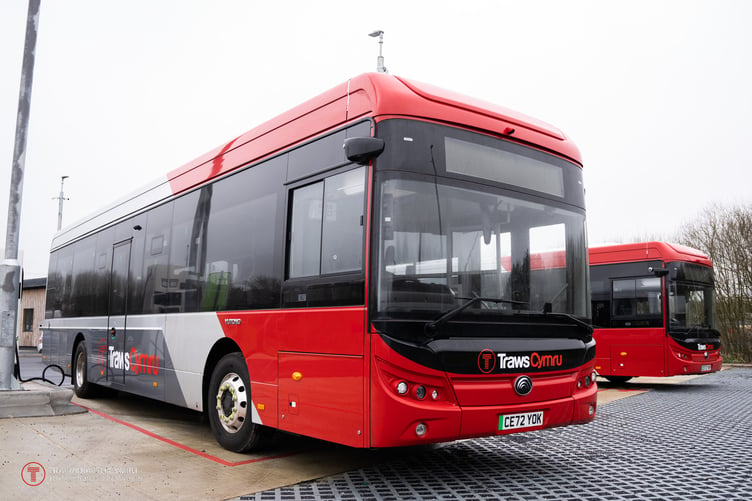Currently there’s a bus bill going through Westminster Parliament while at the same time the Senedd is debating its own. Transport is a devolved issue but, despite both bills coming from a Labour Government, there’s one interesting and important difference.
The blurb that accompanies these bills acknowledges the importance of buses for a large proportion of the population. They want those who rely on buses - a whopping 20 per cent of households have no access to a private car - to be able to enjoy life to the full.
The Westminster bill “intends to implement Labour manifesto pledges to remove the ban on local authority-owned bus companies ownership, and to expand local authority powers to franchise local bus services.” In other words, it’s giving local authorities the power to operate bus services suitable for their own community.
Compare that with the Labour Government plans in Wales. “Bus franchising means that decisions about bus services in Wales, including routes, timetables, fares, hours of operation and service quality standards, will be made by Welsh Government and Transport for Wales (TfW), working in partnership with local authorities and Corporate Joint Committees.” In other words, a top-down centralised approach, with an expensive and expansive bureaucracy to run it.
In west Wales there are few commercial bus services left and they’ll become part of franchises. Most services are TrawsCymru ones, designed to run long-distance routes, preferably in straight lines as train replacements. Besides them they discuss socially necessary routes, without an explanation on who will decide what socially necessary is although it’s clear that the preference is for such services to be demand responsive or run as community transport, largely by volunteers. They mention social services and hospital transport and a few words are given over to the statutory sector, school transport.
In cities pupils can easily walk or cycle to school, even if it’s not their nearest one. Most pupils in west Wales are ferried to school by bus. The cost of this transport has rocketed over the last few years, an increase of 43 per cent in Ceredigion last year. In 2022 Pembrokeshire County Council bought a bus company that supplied many school routes and through doing so saved thousands of pounds. Powys too is examining how money can be saved by using the network of school buses efficiently.
‘Let Us Travel Ceredigion’ is a group recently set up by parents angry at half empty school buses their children aren’t allowed to get on. They point out the folly of the council’s policy that’s neither environmentally nor financially sustainable. The council could simply charge a small amount, and allow other fare-paying passengers on too. It would offer a few services a day to many residents who currently have nothing. TfW also needs to get on board and make it easy for their services to be used by students by making service timetables that take school opening and closing times into account. The crazy system of half empty buses running around Ceredigion’s countryside needs to end.
It‘s all well and good sitting in Cardiff working out a strategy that looks good on paper. The reality in rural Wales is different. Bus policies have to stop costing the earth, literally and figuratively. Our residents, councillors, Senedd Members - and potential ones -need to realise what the Welsh Government is planning for us.
The two Labour Governments seemingly agree is where to spend the miserly £445m the Chancellor gave to Wales. On new stations and upgrading existing lines in the north and the south of Wales. Of course, mid and west Wales is at the back of the queue, again.





Comments
This article has no comments yet. Be the first to leave a comment.